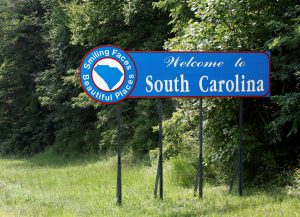Under a new bill signed into law on March 11, 2024, the South Carolina Department of Revenue will have to satisfy additional standards before it may force affiliated corporate taxpayers to file a unitary combined return. These new standards, enacted as part of Senate Bill 298, are expected to rein in the Department’s aggressive use of forced combination, which has led to considerable tax controversy in the state.
Articles Posted in South Carolina
South Carolina Property Tax Law Discriminates Against Railroads in Violation of 4R Act
The U.S. Court of Appeals for the Fourth Circuit held that a South Carolina law limiting increases in appraised values of most commercial and industrial real properties to 15% within a five-year period violated the 4R Act because it discriminated against railroad properties. CSX Transp., Inc. v. S.C. Dep’t of Revenue, No. 19-1154 (4th Cir. May 20, 2020). Continue Reading ›
values of most commercial and industrial real properties to 15% within a five-year period violated the 4R Act because it discriminated against railroad properties. CSX Transp., Inc. v. S.C. Dep’t of Revenue, No. 19-1154 (4th Cir. May 20, 2020). Continue Reading ›
South Carolina ALC Says Pipeline Company’s Assets May Qualify for Pollution Control Equipment Exemption
 On March 6, 2020, the South Carolina Administrative Law Court entered an order in Colonial Pipeline Co. v. South Carolina Department of Revenue, No. 18-ALJ-17-0443-CC, in which it held that a pipeline company’s assets may qualify for a property tax exemption for pollution control equipment of industrial plants under S.C. Code Ann. § 12-37-220(8). In so holding, the ALC rejected the Department of Revenue’s contention that the exemption is available only to manufacturers (i.e., companies engaged in some form of production or that have some form of output). Even if the exemption required some form of production or output, the ALC said, the pipeline company’s process of separating “transmix”—the mixture that results when different petroleum products travel through a pipeline simultaneously—into salable products, adding drag-reducing agents to the product as it is transported, and removing water that accumulates in the transported product is a form of production, notwithstanding that it may be incidental to the company’s transportation business. The ALC concluded that some of the company’s assets, such as tank farms and other facilities and equipment, may fall within the meaning of “industrial plant,” while unattended pipeline that merely transports the product may not. The court ultimately denied the parties’ cross-motions for summary judgment on the grounds that further inquiry into how much of the company’s property can be classified as an “industrial plant” was necessary.
On March 6, 2020, the South Carolina Administrative Law Court entered an order in Colonial Pipeline Co. v. South Carolina Department of Revenue, No. 18-ALJ-17-0443-CC, in which it held that a pipeline company’s assets may qualify for a property tax exemption for pollution control equipment of industrial plants under S.C. Code Ann. § 12-37-220(8). In so holding, the ALC rejected the Department of Revenue’s contention that the exemption is available only to manufacturers (i.e., companies engaged in some form of production or that have some form of output). Even if the exemption required some form of production or output, the ALC said, the pipeline company’s process of separating “transmix”—the mixture that results when different petroleum products travel through a pipeline simultaneously—into salable products, adding drag-reducing agents to the product as it is transported, and removing water that accumulates in the transported product is a form of production, notwithstanding that it may be incidental to the company’s transportation business. The ALC concluded that some of the company’s assets, such as tank farms and other facilities and equipment, may fall within the meaning of “industrial plant,” while unattended pipeline that merely transports the product may not. The court ultimately denied the parties’ cross-motions for summary judgment on the grounds that further inquiry into how much of the company’s property can be classified as an “industrial plant” was necessary.
The ALC’s determination that the pollution control equipment exemption is not strictly limited to manufacturers is important in that it may have implications for other industries in which companies do not engage in traditional forms of manufacturing, or engage in manufacturing as an incident to their primary businesses, but are nonetheless required to use pollution control equipment. Keep an eye on this case.
 SeeSALT Blog
SeeSALT Blog

